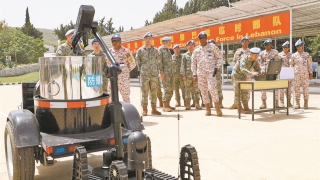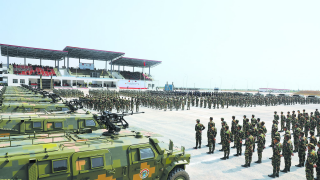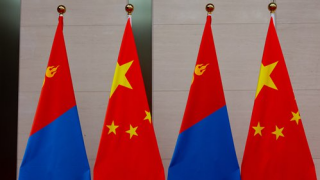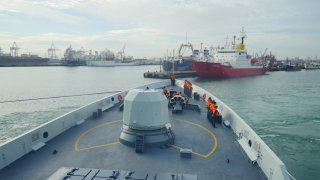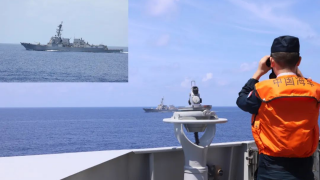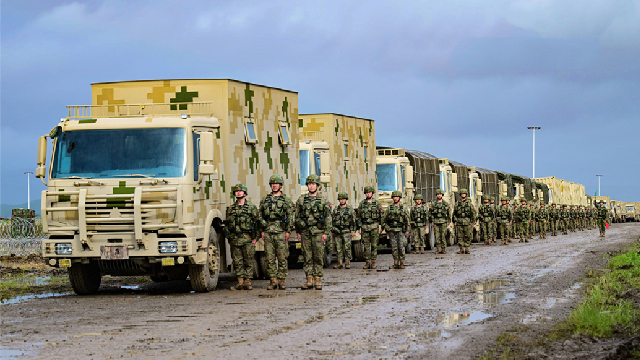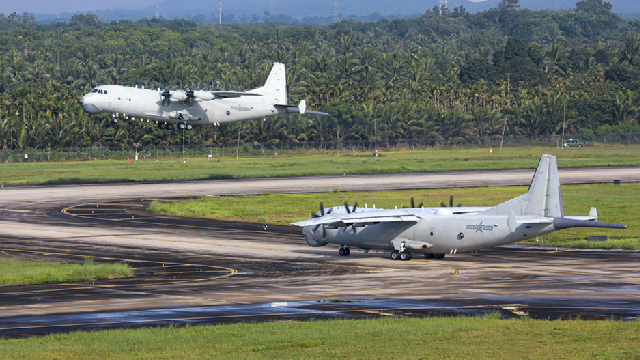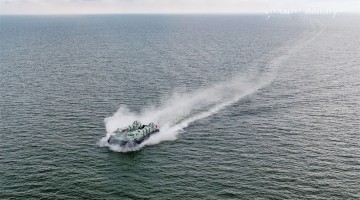By Niu Hao and Cheng Baihua
Recently, regardless of the strong opposition of the international community, the Israeli forces have escalated military operations against Rafah, a city in southern Gaza Strip. This act has further exacerbated the already dire situation, disrupted the distribution of humanitarian aid, and caused more people to be displaced and trapped in misery. Although all sides have urged Israel to immediately cease its military operations in Rafah, it ignores these voices and recklessly expands related military operations.
According to Israel, its attacks on Rafah are intended to eliminate Hamas. The Rafah crossing, located on the border between Gaza and Egypt, is Palestine's only border crossing that leads directly to the outside world without passing through Israel. It also serves as the main passage for humanitarian aid to enter the Gaza Strip. From Israel's perspective, the attacks on Rafah help seize Hamas' last key stronghold to achieve all of the three primary objectives of the military operations: rescuing Israeli detainees, eliminating Hamas, and ensuring that the Gaza Strip is no longer a threat to Israel. The Israeli government seeks to respond to domestic doubts and avoid political risks through the attacks on Rafah. A member of Israel's far-right political parties warned that his party would possibly overthrow the current government if Benjamin Netanyahu was bold enough to call off the attacks on Rafah. At the same time, Israeli people repeatedly held protests in Tel Aviv and other cities, demanding an agreement being reached between Israel and Hamas on the release of detainees, and calling for the resignation of the current government. Facing all these doubts, the Israeli government is in urgent need of a military victory to prove its determination and ability to achieve all the three objectives, thereby consolidating its ruling foundation.
Israel's image as a military power is under continuous pressure which drives the aggressive attacks on Rafah. Since the establishment of the State of Israel, it has set up the image of an invincible power through consecutive victories in five Middle East wars. However, at the beginning of the current round of the Israeli-Palestinian- conflict, Hamas launched all-round attacks on Israel by sea, land and air, which imposed huge losses on Israel. Accordingly, the Israeli forces are eager to attack Rafah to restore its external image as a military power and rebuild its military advantage.
Despite the outside opposition, Israel intransigently clings to its large-scale Rafah attack plan. In implementing the plan, however, it is still constrained by multiple factors, not least the strength of support provided by the US – Israel's main backer.
For Israel, winning the attacks on Rafah is impeded by insurmountable military and economic difficulties. Affected by the war on the front line, Israel's economic growth continues to slow down, and its fiscal deficit keeps rising. According to data released by Israel's Ministry of Finance, its fiscal deficit has expanded to 7% of its gross domestic product (GDP) in April 2024, far higher than in previous years. In addition, Israel's military production capacity is unable to meet the increasing demand for firepower on the front line effectively.
The US is hesitant to support Israel due to their divergence on the Rafah issue. At present, the US government is under enormous public pressure, as evidenced by the protests held in many US universities in support of Palestine and against the US government's support for Israel. When the flames of war spreading to Rafah in early May further intensified the humanitarian crisis in the Gaza Strip, Joe Biden announced the suspension of the delivery of a batch of heavy bombs to Israel for the purpose of alleviating the pressure of public opinion at home and abroad. Nevertheless, the administration informed US Congress through an informal channel on May 14 that it would deliver additional arms totaling more than one billion US dollars to Israel. Mixed messages from the US have blurred the prospect of Israel's attacks on Rafah.
Israel's military operations in the Gaza Strip have been incurring more and more criticism for the country. On May 16, the United Nations (UN) International Court of Justice held a two-day hearing in The Hague, Netherlands, on South Africa's request to stop Israel's military operations in the Gaza Strip. On the 33rd Ordinary Session of the Council of the League of Arab States at the Summit Level just concluded, calls were issued for a just and comprehensive peace in the region based on the two-state solution. The European Union (EU) has also continuously urged Israel to immediately cease military operations in Rafah. Amid the strong opposition of the international community, there is a big question mark about Israel's achievements through its obstinate attacks on Rafah.

